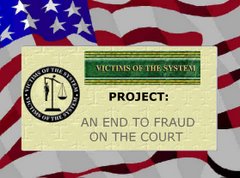Kentucky Trial Derby
Wall Street Journal, August 20, 2007
How's this for a legal bestseller? Three tort lawyers are accused of defrauding their clients of $62 million. A state judge signs off on the scam, and is rewarded with a cushy job. When the scandal comes to light, the bar association looks the other way and another state judge fails to force the men to return the money. A federal judge finally intervenes and jails all three as flight risks.
Welcome to Kentucky, where this thriller is unfolding in real life. Scholars are calling it one of the biggest legal frauds in U.S. history, but it's better viewed as a case study in how hard it is to hold trial lawyers accountable for their low crimes and misdemeanors.
The facts are largely undisputed. In 2001, American Home Products reached a $200 million settlement with 440 plaintiffs for claims that they'd suffered heart damage using the fen-phen diet drug. The lawyers -- including William Gallion, Shirley Cunningham, Jr., and Melbourne Mills, Jr. -- were supposed to get one-third of the payout. Instead, the lawyers kept $106 million, put another $20 million into a charity they established, and left the plaintiffs with a mere $74 million. Plaintiffs say they were told by their lawyers that if they complained they could be sued or go to jail.
Some plaintiffs complained nonetheless, and the circus that has followed has become a black eye for Kentucky's legal establishment. In court papers, the three men denied wrongdoing, and said they deserved the extra money. They noted that the judge who'd signed off on the original settlement, Joseph F. Bamburger, had said the lawyers were due this windfall "for their services and for the incredible risks they took," as well as for various "administrative headaches."
Maybe. Then again, when Judge Bamburger retired from the bench in 2004, he was made a director of the very same charity the lawyers had established with that $20 million. The judge was paid $5,000 a month, money he later returned. He was also reprimanded by the Judicial Conduct Commission of Kentucky for "misconduct in office."
Complaints were made to the state bar association soon after the 2001 settlement, yet six years and a criminal indictment later the organization hasn't held a full hearing on permanent disbarment. Meanwhile, Lexington attorney Angela Ford filed a civil lawsuit asking that 414 of the fen-phen plaintiffs get their money back. After a prolonged proceeding in which the defense was accorded great deference, state judge William Wehr found that Ms. Ford's clients were owed as much as $62 million.
Yet he has so far refused to require a return of the money. The three attorneys have instead had 18 months to hide, spend, or transfer it offshore. Two of the lawyers were splashed across newspapers in May as co-owners of Curlin, winner of the Preakness Stakes. Judge Wehr also inexplicably separated a fourth attorney, Stanley Chesley, from the proceedings. Mr. Chesley happens to be a powerful national tort lawyer, whose wife is a federal judge.
Messrs. Gallion, Cunningham and Mills might have got away with all this were it not for higher authorities. This June a federal grand jury indicted them on charges of fraud. Recently, in the face of endless stalling, federal judge William Bertelsman granted the defendants' motion to move their trial to January, but at the same time ordered them to jail.
He voiced his suspicion that since the three were all in "their 50s and 70s," and that under federal sentencing guidelines they faced 20 years in jail, they had a "tremendous motive to stonewall." He also felt that there was a "serious risk that the funds will be moved offshore and that with these funds at their disposal the defendants will flee to a country with which the United States has no extradition treaty. . ." The judge said he wanted a speedy proceeding because "not only these three gentlemen are on trial, the whole legal profession is on trial in this case."
For this bit of candor, Judge Bertelsman has been assailed, with law professors publicly complaining that it was inappropriate to impugn the whole profession, or to jail the poor millionaire attorneys. We'd say Judge Bertelsman has been the only one clear-eyed enough to realize that the foot-dragging and wink-winking that has characterized the treatment of these attorneys has already left a bad taste about the way some lawyers and judges protect their own.
Other judges should pay attention. A New York law firm also faces trial over accusations it conned its clients out of fen-phen money, while firms across the country are facing scrutiny for manipulating silicosis and class-action securities suits. The trial bar has too often become a law unto itself, and the only way to stop such behavior is for judges and prosecutors to hold the lawyers accountable.

1 comment:
Very interesting Blog. Glad I found it.
Post a Comment